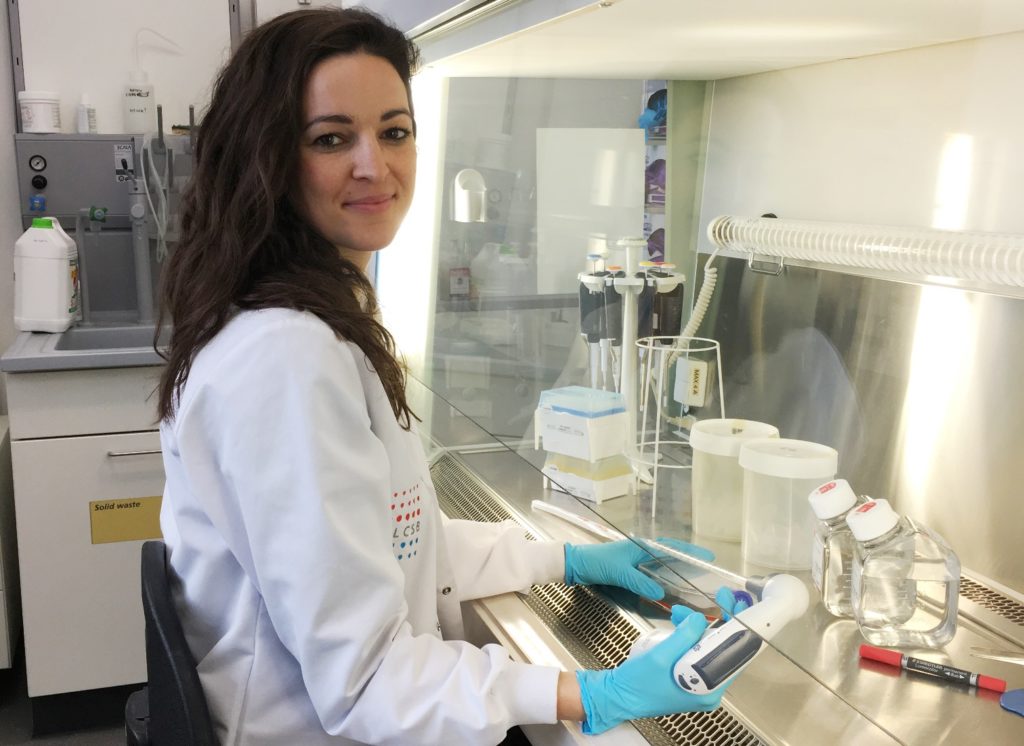A project looking at the impact of diet on colorectal cancer cells, using ‘HuMiX’, the gut on a chip developed by the lab of FNR ATTRACT Fellow Prof Paul Wilmes at the University of Luxembourg’s LCSB, took home the Healthcare Research Award at the 2019 Luxembourg Healthcare Awards.
The HuMiX tool – which has received extensive support from various FNR programmes since it was first conceived – allows researchers to observe the communication between bacteria and human cells in the digestive system. HuMiX therefore provides a completely accurate representation of the cellular and molecular processes at work in the human intestine. The tool can help to better understand and therefore promote the discovery of new treatments for obesity, chronic inflammatory bowel disease, diabetes, cancer and neurodegenerative diseases. Specifically, the Healthcare Research Award was awarded for the lab’s study of the molecular effects of a probiotic and a dietary regimen on colorectal cancer cells
Dr Kacy Greenhalgh, Postdoc in the Wilmes lab (Eco-Systems Biology group) presented HuMiX at the Healthcare Awards. As part of her PhD, Dr Greenhalgh used HuMiX to study the interaction between dietary components, gut bacteria, host health and disease state.
In 2016, three FNR funded projects also won at the Healthcare Awards – find out more.
Find out more about the research surrounding HuMiX in our selection of FNR highlights below.
Find out more about the Healthcare Awards
Thank you for the Healthcare Research Award 2019 prize🥇@FarvestGroup on our study of the molecular effects of a probiotic and a dietary regimen on colorectal cancer cells 🧫🔬 https://t.co/nIp6WqB3nF
— HuMiX Biosciences (@humix_biosci) October 14, 2019
Publication @CellReports @FnrLux @MicroSysEco @uni_lu https://t.co/DMZosb2UzB https://t.co/FugcInZJe3 pic.twitter.com/EhW66aYEkR








